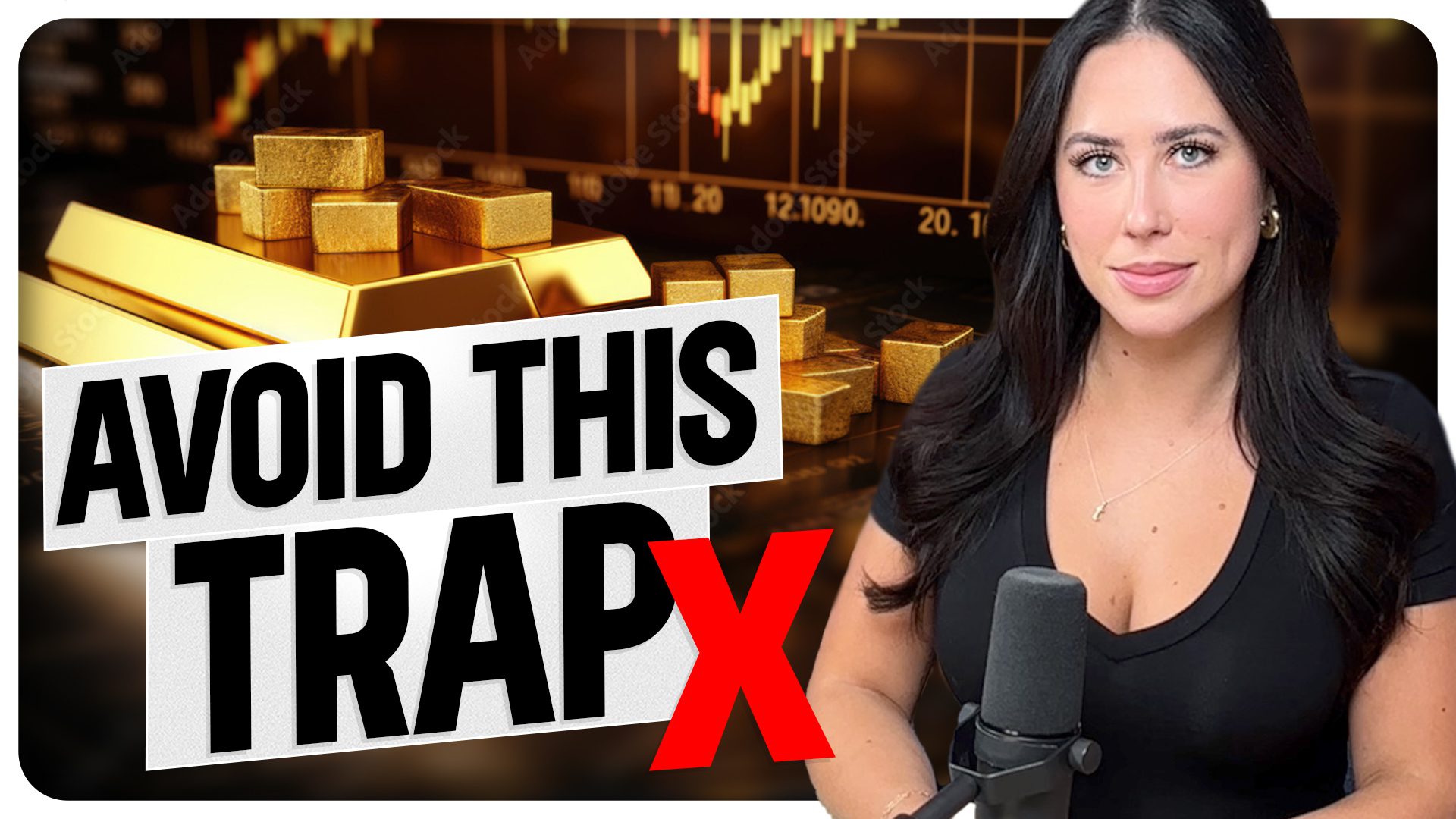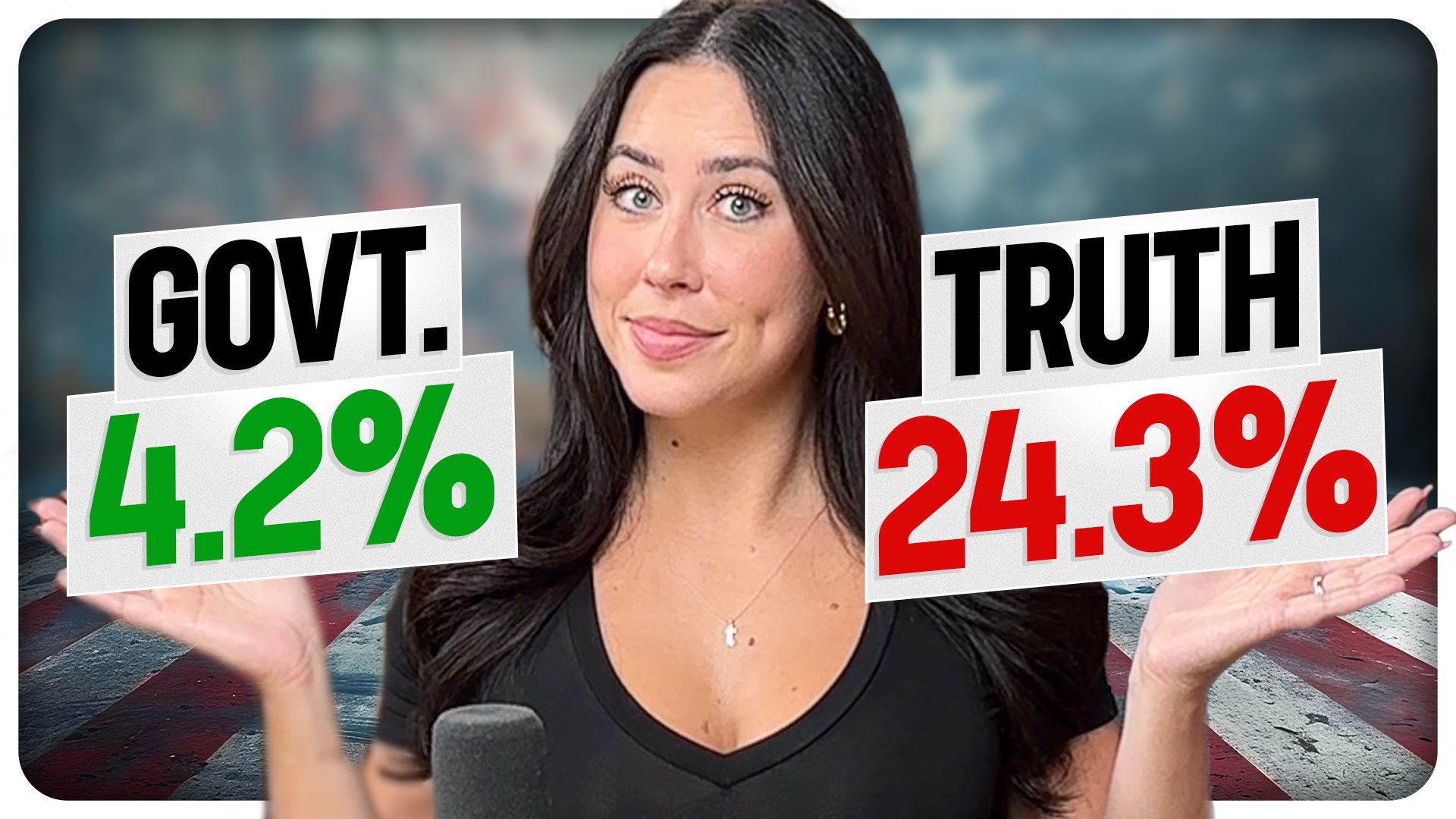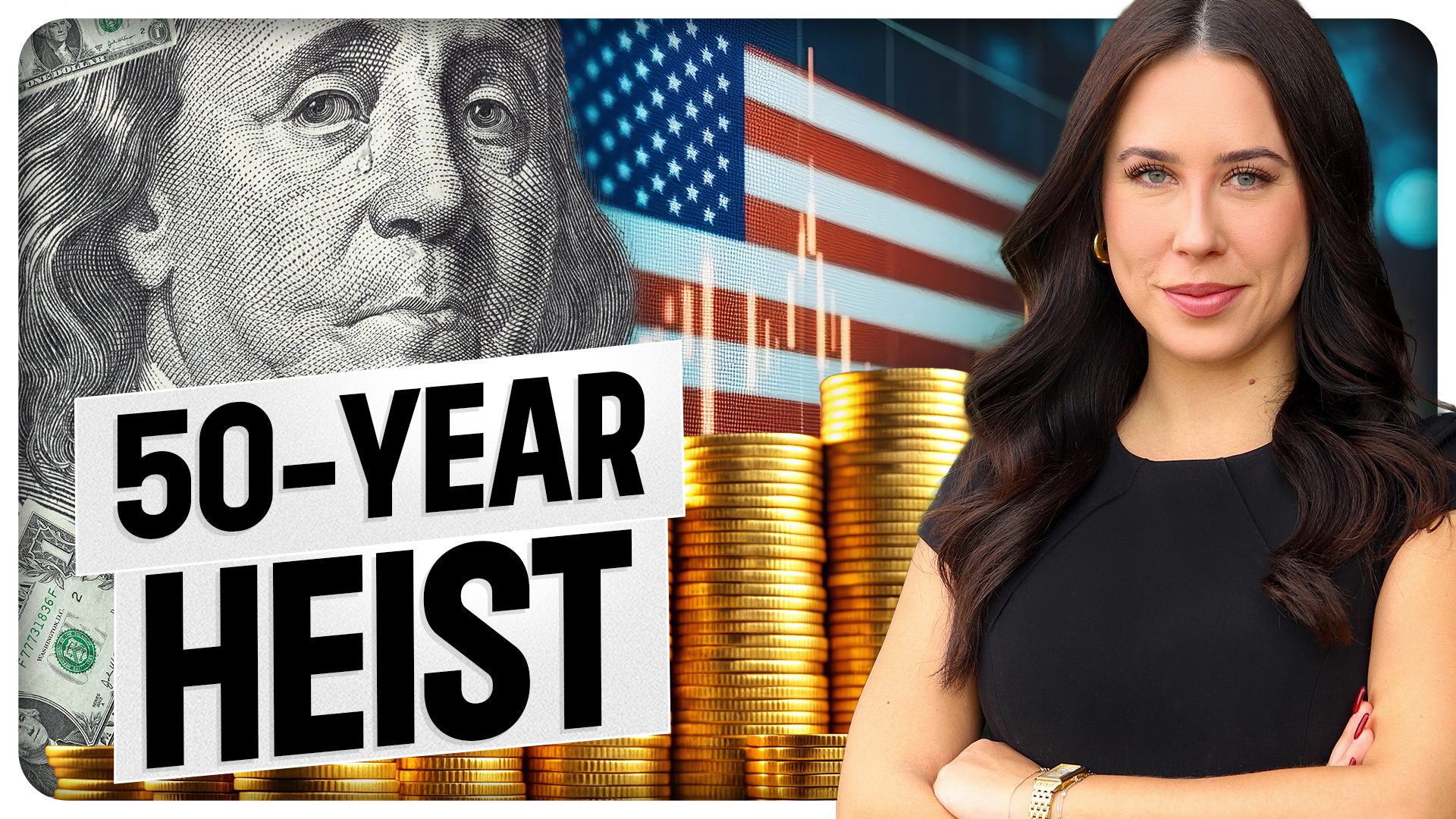Retirement Scam: Did You Read the Fine Print?

Are you relying on your 401K to save you? Chances are your retirement savings could be cut in half! Let’s discuss with Taylor Kenney on what it could look like for America’s 401K retirement plans.
TRANSCRIPT:
00:00
Imagine your 401k turning into a 201k, its value being cut in half a year before you’re set to retire. In 2008, this was the reality for many American workers who thought that they were shielded from economic crisis, but in reality lost over $3 trillion collectively from their retirement accounts as a result of the Great Recession.
But that risk is far from over. In fact, the amount of stock exposure for retirement investors has actually increased in the last 15 years, leaving you more vulnerable to the next crash than ever before, especially for those who don’t have the luxury of time to rebuild. However, if you understand the same threats that the wealthy elite already know about retirement, you too can learn how to protect your wealth for the future.
00:35
401ks are often called a failed experiment because they were never designed to be the country’s primary retirement savings option. In fact, they were originally created as a tax break vehicle for high-level executives and accidentally became a savings option for all. I say accidentally because as they started to gain popularity, it wasn’t long before big businesses and corporations realized that it cost them much less to have a defined contribution versus a traditional retirement option such as a pension plan.
This cost savings realization happened at the same time that Wall Street discovered how much profit could be made off of hidden fees in a way that had never been easier. I mean, think about it: what other financial vehicle exists that lets Wall Street take your money before it even touches your hands and allows them to manage it, fees and all, without most people even realizing what’s happening to it or what they’re being charged for?
01:08
This prompted the creation of a widespread, well-funded marketing campaign that took America by storm, focused on two magic words: compounded interest. This push, combined with lobby-funded congressional protection, led to a bandwagon effect of employees not wanting to be left behind—everyone was doing it. Hence the creation of one of the largest pools of capital in the world: 401k. Now, everything was good. Life was good.
01:40
Originally, in the 80s and 90s, there was tremendous growth in the stock market; no one was questioning what was going on. It wasn’t until the early 2000s, during the dot-com bubble, when people started to question how safe their 401ks really were. But it was 2008, during the Great Financial Crisis, when the reality was revealed that 401ks were not as safe as they had been marketed.
People were left vulnerable, and they didn’t realize it until it was too late. Government intervention helped bail out big banks, but what about the everyday American who was left with an average of 30% less in their retirement account? A retirement crisis had already been brewing, but it was burst wide open, and nothing has been done to fix it since. Just wait until we get to the current-day exposure.
02:46
In addition to the market risk, in the nearly 50 years since the 401k was created, Americans have lost billions of dollars in hidden fees. Despite new regulations requiring more transparency, most participants have no clue what they’re paying. Let’s expose this together because a massive misconception is that the fees, or the expense ratio, is only being applied to the interest earned.
03:21
Here’s a good example: Let’s say you had $50,000 at a 5.88% gross return. If that 1.23% fee was applied to the return only, you would be making $2,940, and it would only cost you $366. But the truth is that the expense ratio is applied to the full balance of your account, so instead of paying $366 in fees, you’re paying $615. When you add on trading fees, the amount you’re paying is almost double, but that’s not even the worst part.
04:04
Remember those two magic words? The words that got millions of Americans to jump on board with a 401k: compounded interest. Well, they’re working here too, except this time they’re working against you. In the example we just used, in 10 years you’ve paid over $20,000 in fees, and after 20 years, while your retirement stands just shy of $125,000, it has cost you as much as $73,456 in fees to get there. What a scam.
Now, I know someone out there is going to say you’re being too harsh. What about the benefits? And yes, it is true, 401ks have absolutely helped many people start talking about retirement and taking action, saving towards retirement—maybe in a way they would have otherwise.
04:40
But at the same time, the bottom line is that 401ks were never created with you in mind. They were created for the wealthy elite, which is why the experiment has failed and we have a retirement crisis. In fact, the median balance of a 401k in 2024 was about $29,000. Now, to be fair, that number does increase as the age increases. The median balance of anyone who’s 65 and over is about $88,000.
05:15
Can you live off of those numbers? And what’s even worse about those numbers is when you take into consideration the taxes. Now, I often hear people say, well, if you wait till 59 1/2, there’s no penalty—which is true, no early withdrawal penalty—but you still have to pay taxes. Let me ask you this: Do you think the taxes are going to be higher or lower in the future? Tell me what you think in the comments below.
Most Americans are sitting on a 401k tax time bomb. We know that the government is going to need more cash flow in the future for several reasons. Look at Social Security, look at Medicare—our national debt continues to rise, reaching record numbers, and the cost of servicing that debt is outweighing most of our other spending.
05:51
So, if you answered that taxes are going to be higher in the future—which, if you ask me, they most likely will be—then you are actually going to be paying more taxes when you withdraw. Because when you withdraw, you’re not paying what your tax liability would have been over all of those years; you’re paying what your tax liability is now, at the time of withdrawal.
So there goes the tax deferral argument. And of course, this is all only applicable if you don’t lose your investment in the first place. Yes, the stock market is strong right now, but you know when else it was strong? Leading up to the Great Recession. We know that this isn’t going to last forever.
06:20
So, how much of your 401k, how much of your nest egg, are you willing to risk? Most people can’t afford to lose a third of their retirement savings. How about you? 401ks are one of the only products that Americans buy where they don’t know the risk, they don’t know the danger, they don’t know the cost, and unfortunately, in this case, what you don’t know can hurt you.
Let this be a wake-up call to reassess your financial future. Traditional 401ks, once hailed as the cornerstone of retirement savings, may not offer you the protection you expect. Hidden fees, tax implications, and market volatility all could erode your savings and leave you vulnerable. The numbers speak for themselves.
06:52
Between future tax increases, an erosion of the purchasing power of the dollars that you’re earning, and when the market corrects—when that happens—how prepared are you going to be? If you’re concerned about these risks and you want to explore how to diversify and make sure that your retirement savings are protected, talk to one of our expert analysts. They have decades of experience in helping people navigate financial uncertainty and making sure that their finances are protected from what’s to come.
Education is essential when talking about these topics, so if you have a loved one who you think would benefit from this, please send them the link. Be sure to like, subscribe, and share—it really helps us get the word out. As always, I so appreciate you being here. I’m Taylor Kenney with ITM Trading, your trusted source for all things gold, silver, and lifelong wealth protection. Until next time.
SOURCES:
https://www.cnbc.com/2018/09/13/these-retirement-funds-took-a-beating-in-2008-it-could-happen-again.html
https://www.nbcnews.com/business/retirement/great-401-k-experiment-has-failed-many-americans-n327321
https://www.pbs.org/wgbh/pages/frontline/business-economy-financial-crisis/retirement-gamble/how-retirement-fees-cost-you/
https://www.cnbc.com/2017/04/06/what-you-dont-know-about-401k-fees-can-cost-you-plenty.html














